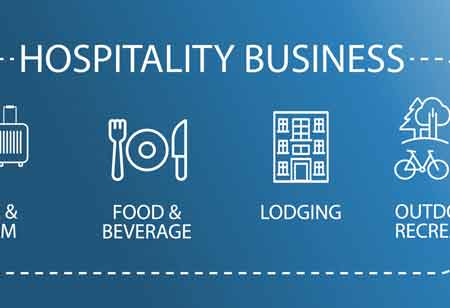Thank you for Subscribing to Hospitality Business Review Weekly Brief
Rising Trends That Are Redefining Hospitality Marketing
Hospitality businesses can enhance visibility, improve customer engagement, and stay competitive in an evolving industry.

By
Hospitality Business Review | Thursday, August 14, 2025
Stay ahead of the industry with exclusive feature stories on the top companies, expert insights and the latest news delivered straight to your inbox. Subscribe today.
Fremont, CA: Staying up-to-date with changing hospitality marketing trends is essential, but it’s equally important to understand the underlying factors driving these shifts. Today’s consumers are increasingly aware of corporate responsibility, making sustainability a key focus in hospitality marketing. Many customers prefer to support brands that prioritize sustainability and steer clear of those that don't. Sustainability initiatives such as using renewable energy, recycling, sourcing local ingredients, and adopting energy-efficient solutions are all examples of efforts that can be highlighted in marketing materials. Hotels, restaurants, and other establishments can use these initiatives to attract eco-conscious travelers.
Data-Driven Insights for Enhanced Consumer Engagement
With travel risks still influencing consumer behavior, hospitality businesses must move beyond speculation and rely on data-driven insights. Analyzing website traffic, booking trends, and customer demographics helps companies to recognize shifts in consumer preferences. Remarketing targets individuals who have previously visited a business’s website but left without making a booking.
Companies can re-engage potential customers by displaying targeted ads or offering exclusive discounts to encourage conversions. Companies can leverage analytics tools to track user demographics and interests, ensuring remarketing efforts reach the right audience. Filtering search data helps collect valuable insights about visitor behavior, allowing for more precise targeting and improved results.
Personalized marketing tailors communication to individual customers by utilizing automation and data-driven strategies. It fosters engagement and strengthens customer relationships. For example, a hotel can notify past guests about upcoming promotions or exclusive discounts. Personalization enhances the customer experience, making guests more likely to return. It is one of the most effective hospitality marketing techniques for building long-term loyalty.
Harnessing WiFi Data and Prioritizing Safety in Hospitality Marketing
An emerging trend in hospitality marketing is using private branded messages through social media and mobile channels. Companies can use direct messaging to share promotional codes, introduce new services, respond to inquiries, and gather customer feedback. Ensuring that messages align with a company’s branding strategy is crucial, which may require collaboration between marketing and customer service teams. The use of WiFi data in hospitality marketing is expanding rapidly.
Hotels, restaurants, and other businesses can track guest movements and determine whether they are on-site. It enables the delivery of targeted marketing messages in real time. For instance, a hotel could send promotional messages to guests on the premises, excluding those exploring the city. WiFi analytics provide valuable insights into guest behavior, such as occupancy patterns and peak visitation times, allowing businesses to optimize services accordingly.
The most enduring post-pandemic hospitality trend is the emphasis on safety and hygiene. Businesses must communicate their health protocols, such as enhanced cleaning, social distancing measures, mask policies, and contactless transactions. Ensuring customers are informed about these precautions before arrival fosters trust and reassures them of a safe experience. Integrating safety messages into marketing materials and guest communications helps businesses align with customer expectations and maintain high service standards.







